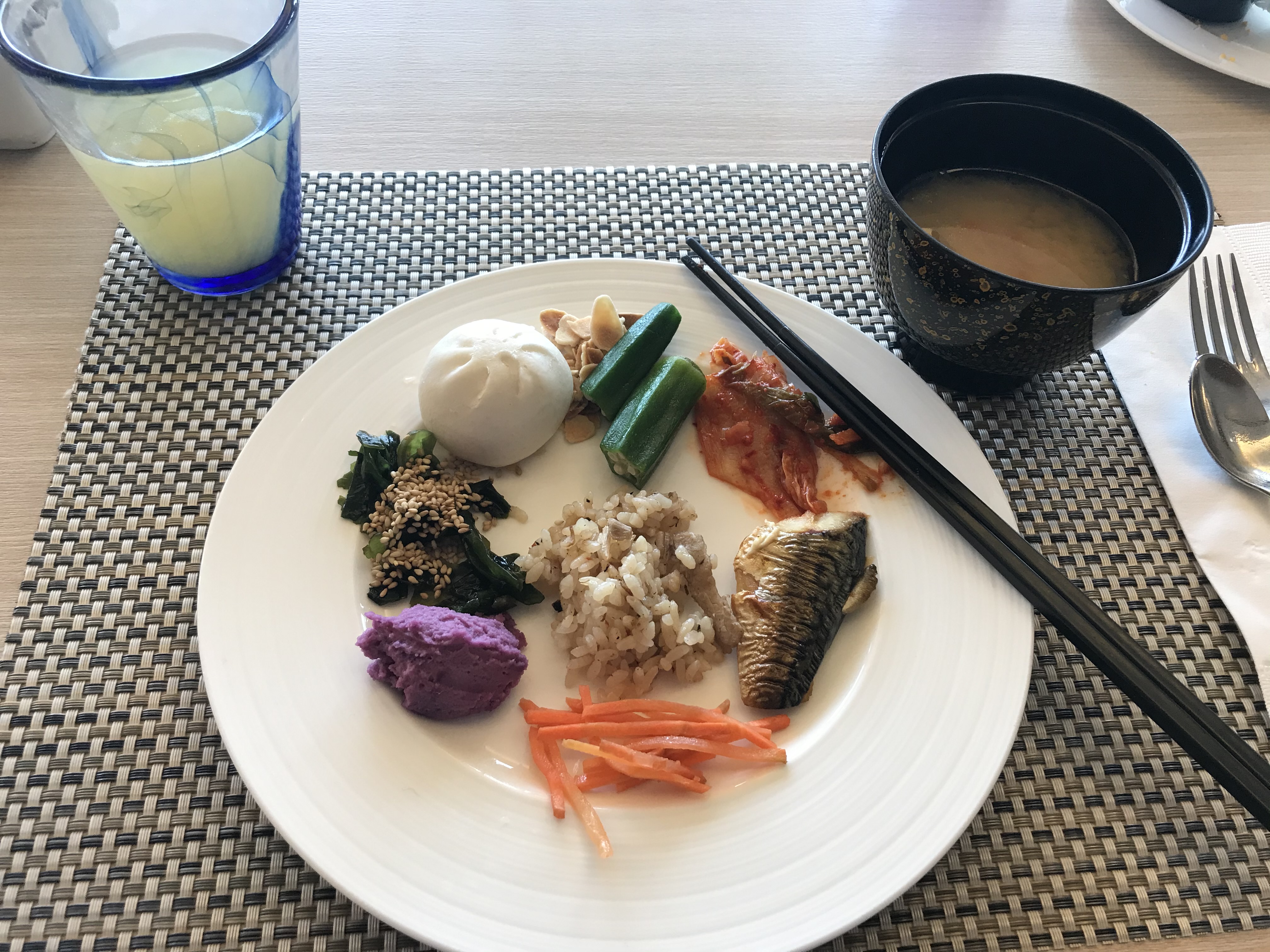Last February, my daughter’s Kindergarten class dressed up as 100-year-olds to celebrate their 100th day of school. They happened to be going to school in Okinawa, an island in Japan which has the highest proportion of centenarians in the world. I found this fact a bit surprising at first, because when I think of Japanese food, I mostly think of rice, noodles, fried things, sauces with a lot of sodium, and, in Okinawa, pork. Not exactly what comes to mind when you think of health food.
As I’ve made an effort lately, like many people, to focus more on healthy eating and what truly makes my body, not just my taste buds, feel good and run well, I’ve been contemplating the foods of Okinawa more. While I wasn’t been able to fully immerse myself in the local culture enough to know a lot about what goes on in a typical Okinawan household (versus eating restaurant fare in American-sized portions) and I can’t speak extensively on daily home-cooked foods, habits, or perspectives, I did have a moment where some of the Okinawan ethos that contributes to their long lifespans suddenly clicked a bit more for me.
I had the chance to take a quick local getaway, thanks to some hotel points and a husband who knew his wife needed a break. While the chance to escape my daily responsibilities and get some coveted alone time was alluring, the most refreshing thing about it for me, quite surprisingly, turned out to be the food.
When I walked into the hotel’s dining room where a breakfast buffet was being served, I was worn out to my core. I had held down the fort at home for weeks at a time while my husband had been on various TDYs (the military equivalent of a business trip). The weather the day of my solo excursion was chilly, windy, rainy and uninspiring, but I had walked along the seawall and in and out of the outdoor shops anyway, because this was my chance for freedom, rain or shine. This getaway had yet to feel refreshing- I was tired, I was cold (yes, on a subtropical island), and I was really hungry.
I needed nourishment in more ways than one, and this upscale Okinawan buffet delivered. Very few of the typical greasy, fattening and sugar-and salt-loaded items you’d expect from a hotel breakfast could be found, and I was aware once again that I was not home, but in this instance that turned out to be a blessing in disguise.

The food in the photo above is what I didn’t even know I craved until I saw it: Mackerel. Kimchi. Miso soup. Seaweed. Okra. Purple sweet potato. Freshly squeezed bitter melon juice with apple cider vinegar. There was real (not sugar-loaded) yoghurt with some delicious pureed fruits to drizzle on top, and what is a very special and expensive treat here: sweet, ripe, local watermelon. There were various other things that I didn’t try because I didn’t know what they were, and I was more in the mood for comforting foods than adventurous ones. But this was comfort food in a way that felt even more soothing than a heaping helping of mac n cheese, fried chicken, deep dish pizza or apple pie. Nourishing is the best word to describe how it felt physically and emotionally that day.
Maybe some of the foods on that plate fall more in the too-adventurous category for you than the comforting category, or just aren’t to your liking (I’m usually not much of a kimchi person, but it is growing on me), and that’s fine. But what are the foods that make you feel taken care of in a truly nourishing way versus reaching for the bag of chips or piece of cake that feel comforting in more of a placating way? Is it a healthy chicken soup? A big salad with all of your favorite toppings? Flavorful fish tacos? A warm bowl of oatmeal sprinkled with cinnamon? A hot cup of tea?
That miscellaneous moment enjoying a truly nourishing meal on a dreary day turned out to be an unexpectedly prominent memory of my time in Okinawa. It inspires me, and I hope it inspires you, to cultivate true nourishment, wherever we may be.
Leave a Reply